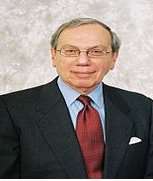 One of the giants of bankruptcy law in the United States has passed away.
One of the giants of bankruptcy law in the United States has passed away.
Harvey Miller will be important to readers of AllAboutAlpha because he was one of the old-school pillars of the bankruptcy bar and because in that capacity he was outspoken that distressed-asset hedge funds were a baleful influence. A Reuters report on his death (of ALS at age 82) puts it this way: “He was troubled … by what he perceived as a philosophical shift in recent years … as hedge funds have begun to drive cases in a manner more focused on maximizing their profits than salvaging the underlying business.”
Miller’s advocacy was central to bankruptcy proceedings involving General Motors, WorldCom, Enron, and Lehman Brothers.
In 2009, Michael Y. Park, writing for New York Metro Super Lawyers, called Miller “a minor deity in the bankruptcy arena.”
The NYSE and Continental
He became a bankruptcy standout in almost random fashion. By 1970 he was the New York Stock Exchange’s legal representative on broker-deal relations. Over the next three years, several member companies of the NYSE went bust, and Miller became involved in their proceedings. From this standpoint, he also became involved as well in an effort to get Congress to reform bankruptcy law, the movement that led to the Bankruptcy Reform Act of 1978.
Continental Airlines went bankrupt in 1983. Miller was in the thick of it. The airline was ‘successfully’ re-organized and sent back into the market fray. I put the word ‘successfully’ in scare quotes because the bankruptcy proceedings for airlines in those days were an evasion rather than a recognition of the real problem – that the airline industry had become ruinously competitive and unprofitable. So … Continental emerged from bankruptcy court protection in June 1986.
But its time under that protection hadn’t seen any change in the market factors that had driven it into insolvency in the first place. As a consequence of the continued operation of the same world, Continental filed for bankruptcy again in December 1990. Again Miller was in the midst of it.
Here I submit (and I speak with due respect for the departed) we may see a certain weakness in Miller’s underlying principle. He always wanted bankruptcy to be about re-organizing a solvent company. Yet that cannot always be the goal. If there are too many sellers of widgets, if widget demand doesn’t support so many, then by some mechanism some widget sellers ought to leave the market. If not the insolvent widget sellers: which?
Argument and Silence
The airline market has begun to rationalize in recent years, hence the relative paucity of those big-headline bankruptcy proceedings these days. Continental merged with United in 2012, part of a long-delayed, long-necessary process of consolidation.
Sometimes alpha-seeking hedge funds lead to liquidation of companies. Sometimes they help create the pressure for mergers. In either capacity they can help rationalize a market where competition has become irrational. They are part of the market mechanism by which demand and supply are allowed to reach equilibrium.
But let us put our arguments with Miller aside and recognize him as the giant he was. His friend, John Pottow, wrote on Credit Slips on learning of his death, “I can’t count how many younger lawyers I the field he encouraged and taught, in so many ways. It’s just hard to imagine a world without his seemingly indefatigable spirit.”
Of that whereof one cannot speak, one must be silent.



